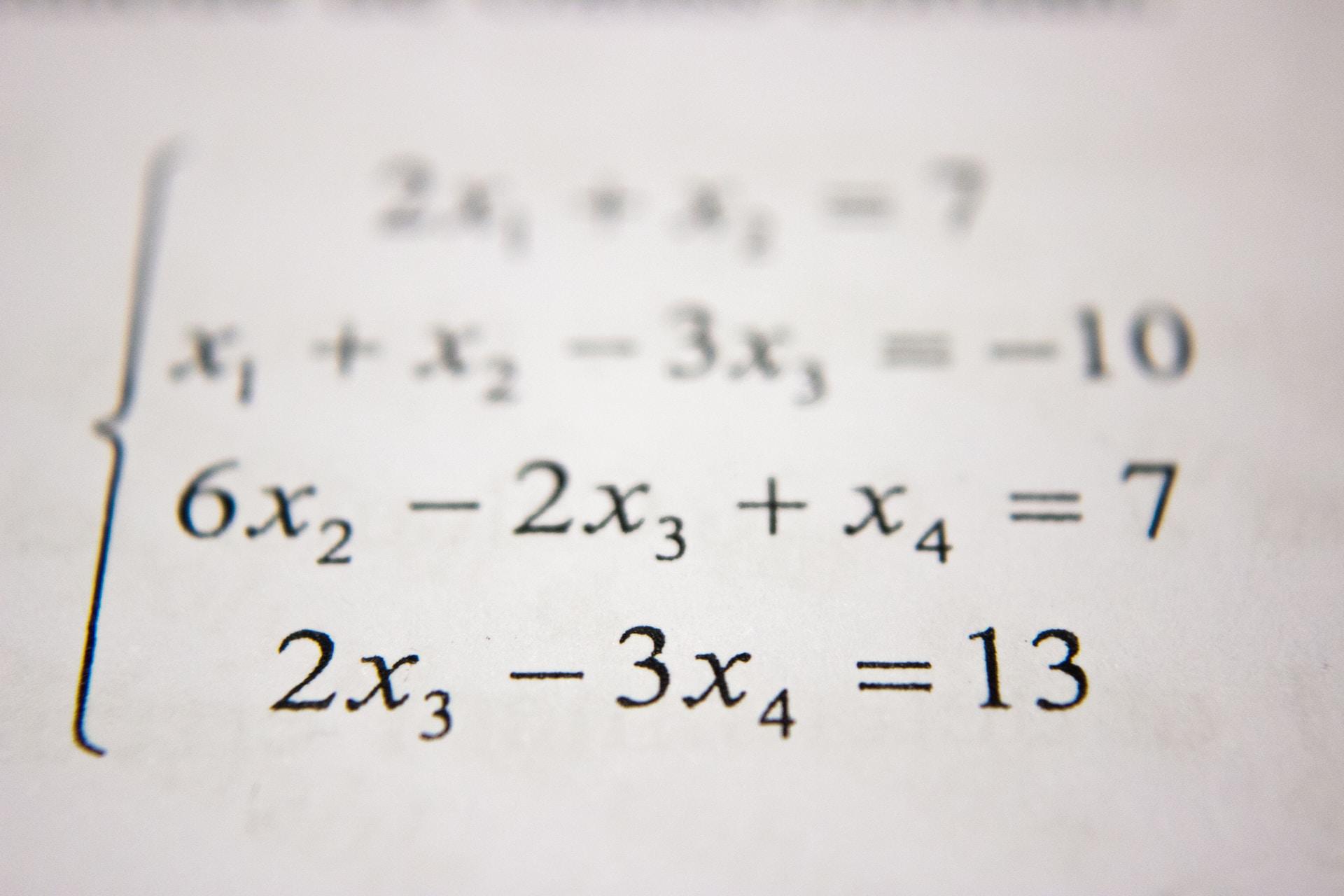It may not seem like it at first glance but maths and economics go hand in hand. This is because the sheer number of economic theories and theoretical models have a numerical element. So you need some level of mathematical and numeracy skills to create, interpret and analyse economic models.
The link between maths and economics is not often emphasised at GCSE or A-Level. Students sitting Economics A-Level are unaware of the importance of mathematics in economics so they do not take maths as an accompanying A-Level. Some students don't realise that they’d like to study economics as a social science at university until late in their university application process. That leaves such students may without a Maths A-Level when they fill out their UCAS application.

Economics Degree Without Maths A Levels: Is It Possible?
Yes, it's possible to pursue an Economics degree without having an A-Level in Maths, although your options may be more limited. Many universities in the UK require A-Level Maths for admission to their Economics programs due to the quantitative nature of the subject. However, there are some universities and courses that either do not require A-level maths or offer alternative entry routes.
1. Universities with Flexible Entry Requirements
- Some universities may not strictly require A Level Maths but may instead accept a strong performance in a related subject like Economics, Business Studies, or even a high grade in GCSE Maths.
- Universities such as the University of Kent and SOAS, University of London, may have more flexible entry requirements.
2. Economics and Related Courses
- Some universities offer Economics with a foundation year or joint degrees such as Economics and Politics or Economics and Management, which may have less emphasis on Maths or offer more support for students without an A Level in Maths.
- Courses like Political Economy or Development Studies might include elements of Economics but have less stringent Maths requirements.
3. Alternative Qualifications
- If you're really keen on studying Economics at a university that requires Maths, you might consider taking an A-Level Maths or an equivalent qualification, like a Foundation Year in Economics, which can help bridge the gap.
4. Universities Offering Support
- Some universities are aware that students may not have a strong Maths background and offer additional support, such as Maths for Economists modules, to help students catch up.
5. International Options
- Some international universities may have different entry requirements, and you might find that Maths is not as heavily emphasized.
Do Universities Prefer Maths Candidates?
Not having a Maths A-Level can cause problems for any aspiring economist applying for an Economics undergraduate program. This is because many universities require or expect a student to have a Mathematics A-Level when they apply. Many universities place a higher value on having a good Mathematics A-Level over Economics A-Levels when it comes to applying for economics degrees.
This preference can cause students to feel disheartened. Many believe they can’t apply for an Economics program because they didn’t take the right qualifications or subject combinations at school. But many universities in the UK will accept applications from students who don’t have a Maths A-Level when they apply.
In fact, some universities don’t require you to sit an Economics A-Level to get onto an economics undergraduate course. Maths is an important subject for an economics application so some universities offer intensive maths courses for those students to catch up. This means that there are lots of opportunities out there for students; it’s just a case of knowing where to look.
Where Can You Study Economics Without Maths A-Level?
There are some universities that will allow you to study economics without A-Level mathematics, but you may have a challenge to get accepted. Leicester and Birmingham Universities are two examples that may allow you to enter the course even without a mathematics qualification.
Understand that without a Mathematics A-Level, you will be denied entry into some university economics courses. But there are still plenty of universities that do not require an A-Level in maths. You just have to keep an eye out for those offerings.
Courses That Emphasise Maths A-Level
Courses that require maths at A-Level tend to focus on the numerical and statistical principles of economics and economic data. Schools like University College London and the London School of Economics (LSE) both require applicants to have sat Maths A-Level. LSE goes a step further to state that they recommend applicants sit Further Mathematics A-Level. At least, successful applicants must have an A-grade in AS-Level Further Mathematics.

Courses That Do Not Require Maths A-Level
Other university degree courses do not place so much emphasis on maths or structure the course to accommodate those that may not have studied maths past GCSE. For instance, the University of Nottingham does not require undergraduate applicants to have sat either economics or maths at A-Level for admission to their Economics courses. What’s more, the amount of maths you study throughout the degree comes down to the elective subjects you choose.
You will have compulsory courses related to Quantitative Economics and Mathematical Economics. However, this school's Frequently Asked Questions (FAQ) section assures us that students consistently leave positive course feedback. So a maths score is not required to apply but having one may improve your chances of being accepted in the course.
The University of Sussex offers a Bachelor of Arts (BA) in economics, too. It requires only a grade B in GCSE maths to apply. But if you set Mathematics A-Level, this school expects grades between AAB-ABB. If you struggle with A-Level maths or economics, consider a few sessions with an economics tutor online. It's a sure way to get the grades you need to enrol in this program.
The University of Leicester is another university that doesn’t require students to have a maths A-Level to apply for their BA Economics course. But as with other schools we've mentioned, you're more likely to make the cut if you do. Still, it's good to know that you have schools that accept students without maths A-Levels into their Economics programs.
These economics study programs may not require an A-Level in maths but those universities expect students to show strong results in GCSE maths, at the minimum. So double-check your GCSE maths results to see if they will meet the entry criteria for your chosen course.
Additionally, please note that the above universities are just a selection of institutions that offer economics degrees. As ever, it’s worth taking time to conduct your own research into different universities. You can see for yourself whether their entry requirements match your own grade expectations and subject combinations.

BA or BSc?
We know what BA stands for; BSc is Bachelor of Science; which of these undergraduate economics degrees would you like to complete? Typically, a Bachelor of Science will focus more on the numerical side of economics. Such a degree plan includes courses that require maths at A-Level as an entry requirement. My Economics tutor London said the BSc is indeed more heavily focused on maths.
By contrast, a university that awards a Bachelor of Arts for its economics degrees tends to focus less on maths and statistics. Knowing the difference between a BA and a BSc should give you some indication of the course’s content and whether it would suit your own preferences.
Some universities let you work towards a BSc without having a Maths A-Level. For instance, the University of Nottingham offers undergraduates the choice of whether to graduate with a BA or BSc as their course progresses. That allows students to make a more informed decision about which path they’d prefer to study once they’re at university.
The course content of a BA and BSc Economics is different but the type of degree you earn should not have a huge impact on the kind of graduate jobs you can apply for. So instead of focusing on the distinction between a BA and a BSc, turn your attention towards earning a good degree. Usually, that's considered to be 2:1 or above. That will help you more when applying for jobs or an internship.

An Economics Degree Without Maths Still Offers Great Career Opportunities
It’s important to remember that in the UK, an economics degree is highly regarded. It doesn't matter if your course has a focus on maths or statistics or is more concerned with economic theories and principles. Economics graduates tend to do well in the workforce compared to other degree subjects such as psychology or history. A degree in economics also equips you with key skills such as:
- Analytical thinking
- Communication and presenting skills
- Research skills
You might like to go into accountancy, continue on to graduate study, or put your business and economics knowledge to work in another profession. You may also pursue other career ambitions, regardless of the amount of maths you studied during your degree. For instance, you may launch yourself into business as an economics tutor, online or in-person.
The main thing to remember is that your university and future employers will be more concerned with how well you understand key economic principles. They'll need assurance that you know macro- and microeconomic principles, and are able to engage in high-level economic analysis. That's why lacking a Mathematics A-Level should not hold you back from applying for an economics degree. As long as you earned a solid maths grade at GCSE, you should be able to find a course that suits you.
If you would like to take an economics degree that does focus on maths and statistics, you might consider taking a Foundation Year. Many universities make that option available. This may then give you the mathematical skills that you need to continue with a full-degree course in economics.
Once you’ve decided which universities you’d like to apply to, make sure that you are on track to meet the entry requirements for those courses. If you need an A in economics to get into your degree course, you'll want to make sure you’re doing as much as possible to secure that grade when exam season does roll around.
If you are thinking about ways in which you can improve your academic performance or would like some study tips about how to best prepare for your final exams, then you may want to hire a maths or to help you.
Tutors can be an effective learning tool, as they provide:
- Extra motivation to help you succeed in your studies;
- Additional mock exam questions to ensure you’re fully prepared for exams; and
- Assistance and help with any specific questions you have about your A-Level course.
Superprof has a range of tutors including A Level Economics tutor, in maths, economics, and other subjects, who are ready to help you perform and get the results that you need for university. So why not find your perfect tutor today?
Summarise with AI:
















it would be helpful if you can provide list of universities where sudent can join for Economic without studying maths at Higher secondary level.
Hi Lucy if you study Economics, History and Georgraphy Combined degree at LSE you don’t have to have a Maths A level.
Do u mean if I have the subject History , geography and economics in higher secondary level I can Persue a economics degree ? Can I have a Bsc degree ?
Yes you can! Although you may be advised to take a BA you have the complete choice to a BSC, don’t worry!
Here are some universities i found
Loughborough Uni
Nottingham Uni
UEA uni
University of Surrey
Royal holloway Uni
Uni of sussex
St Andrews Uni
Kent Uni
Manchester University
Birmingham University
There are probably alot more but here are some good and mid tier universities that do not require Higher maths. Good luck!!
Yes you can! Although you may be advised to take a BA you have the complete choice to a BSC, don’t worry!
Here are some universities i found
Loughborough Uni
Nottingham Uni
UEA uni
University of Surrey
Royal holloway Uni
Uni of sussex
St Andrews Uni
Kent Uni
Manchester University
Birmingham University
There are probably alot more but here are some good and mid tier universities that do not require Higher maths. Good luck!!
your site is really helpful